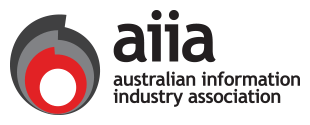Join the Community:
Become an AIIA Member today.
Internet of Things (IoT)
2019-20 Australian Federal Budget – AIIA Response
The AIIA has released a series of analyses in response to the 2019-20 Federal Budget, and has been tracking the Opposition’s announcements.
- AIIA 2019-20 Federal Budget Analysis – Internet of Things (IoT)
- ALP Policy on Internet of Things (IoT)
AIIA Internet of Things (IoT) Policy Position Statement
Update – 29 March 2019.
Australia must make the most of the IoT opportunity, developing an innovative IoT strategy that addresses fit-for-purpose regulatory frameworks, manages risk and encourages business to develop data expertise.
Why does this matter?
The total economic value derived from digital innovation in Australia represents 7.4 per cent of the country’s total gross domestic product (GDP) over the past two decades, compared with 11.2 per cent of GDP in advanced economies.
Australian investment in R&D is declining. Australia spends 1.88 per cent of its GDP on research and development, which is well below the OECD average of 2.38 per cent. Australia currently ranks number 12 out of the 16 countries surveyed on its level of business expenditure on digital R&D.
Currently, the proportion of organisations in Australia that receive government funding for innovation is remarkably low — the lowest in the OECD for large firms and the second lowest for SMEs according to 2019 OECD analysis.
This lack of funding is not only damaging to our current levels of innovation but will have a negative effect on our long-term ability to innovate and commercialise those innovations.IoT refers to a network of internet connected things that automatically collect and exchange data. This includes sensors that can measure temperature, record sounds, movement or images and send that data to other things. The value of IoTs are the insights derived and actions driven by the data that’s collected and shared.
While Australia is leading the way in opening its data to the public, balance is needed to ensure the privacy and security of customer. data. Interoperability of systems, data formats, regulatory frameworks and cost-effective access to data are key components in the operationalisation of IoT.
Adoption of IoT technologies offers Australia transformational economic benefits particularly through smarter use of infrastructure, smart cities and intelligent asset management. However, Australia is underprepared for the opportunities that IoT offers. Remote sensing networks rely on patchy connectivity, autonomous vehicles and location-based industries rely on GPS.
As data becomes more prevalent through adoption of IoT, the impact of the IoT on storage infrastructure, particularly the increasing demand for more storage capacity will also need to be addressed. How data is used by government decision makers will depend on public acceptance of ethical frameworks.
As data becomes more prevalent through adoption of IoT, the impact of the IoT on storage infrastructure, particularly the increasing demand for more storage capacity will have to be addressed.
Addressing the challenges
Australia’s ability to keep pace with rapid technological changes and its ability to quickly address implications of ‘disruptive’ technology on vertical industries is a primary challenge.
The existing lack of Standards and Regulations that ensure interoperability of systems and data formats while ensuring privacy and security of the data hampers business take up. Fit-for-purpose regulations that are sufficiently flexible to safeguard Australians and provide a competitive business environment, but do not impede business and technological innovation are needed.
Similarly, the pace of the rollout of critical digital infrastructure to support IoT technologies impedes rural and remote adoption IoT’s.
Addressing the capability gaps that exist in all areas of data science is critical to the development of innovative IoT applications. The demand for data skills is increasing and global competition is rising. All levels of business will require data expertise to continue to grow and, in the design, and development of new products and services.
Support for research and development through regulatory frameworks and tax frameworks is also critical for fostering the growth of IoT in Australia.
AIIA recommends
Government, industry and research institutes must work together to co-design:
- A flexible IoT strategy that addresses the implications of ‘disruptive’ technology and ensures discovery, secure collection and sharing of data;
- Clear communication and better understanding of IoT, including a simple definition and a greater awareness of its evolving nature and emerging applications;
- Standards and Regulations that ensure interoperability of systems and data formats across all levels of government;
- Accelerated rollout of digital infrastructure to ensure Australia is a nation of digital exemplars in the area of IoT; and
- Greater collaboration with industry and research institutes to deliver skills, innovation and growth in the IoT sector.



